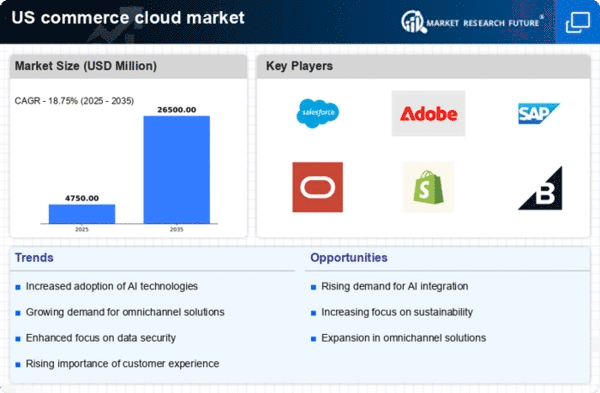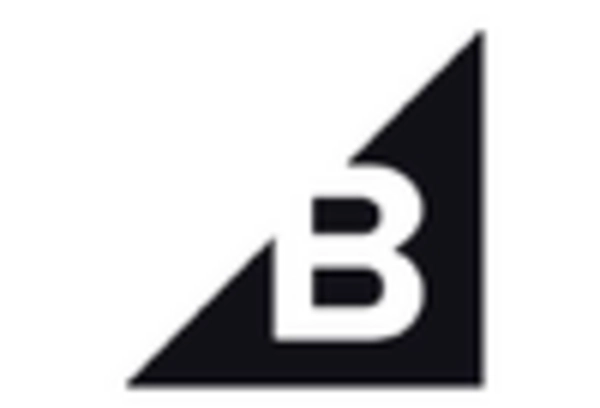Expansion of E-commerce Platforms
The rapid expansion of e-commerce platforms is significantly influencing the commerce cloud market. With online retail sales in the US projected to reach $1 trillion by 2025, businesses are increasingly adopting cloud-based solutions to manage their online operations efficiently. This growth is fueled by the need for scalable infrastructure that can handle fluctuating demand and provide seamless customer experiences. As more retailers transition to digital-first strategies, the commerce cloud market is poised to benefit from this trend, as companies seek robust platforms that support their e-commerce initiatives and enhance operational agility.
Rising Demand for Personalization
The commerce cloud market is experiencing a notable surge in demand for personalized shopping experiences. As consumers increasingly seek tailored interactions, businesses are compelled to leverage advanced analytics and AI technologies to deliver customized offerings. This trend is reflected in a report indicating that 80% of consumers are more likely to make a purchase when brands offer personalized experiences. Consequently, companies are investing in commerce cloud solutions that enable them to analyze customer data effectively and create targeted marketing strategies. This shift towards personalization not only enhances customer satisfaction but also drives revenue growth, making it a critical driver in the commerce cloud market.
Emergence of Subscription-Based Models
The emergence of subscription-based models is reshaping the commerce cloud market landscape. Businesses are increasingly adopting subscription services to foster customer loyalty and generate recurring revenue streams. This shift is evident in the growing number of companies offering subscription boxes and membership services, which cater to consumer preferences for convenience and value. Data indicates that subscription e-commerce revenue in the US is expected to reach $500 billion by 2025. As more businesses explore this model, the demand for commerce cloud solutions that support subscription management and customer engagement is likely to rise, further driving market growth.
Integration of Advanced Payment Solutions
The integration of advanced payment solutions is emerging as a pivotal driver in the commerce cloud market. As consumers demand more flexible and secure payment options, businesses are adopting cloud-based payment systems that facilitate seamless transactions. Recent data suggests that 70% of consumers prefer using digital wallets for online purchases, prompting retailers to enhance their payment capabilities. This shift not only improves customer convenience but also reduces transaction costs, thereby driving the adoption of commerce cloud solutions that support diverse payment methods. The ability to integrate these advanced solutions is likely to be a key differentiator for businesses in the competitive landscape.
Increased Focus on Supply Chain Optimization
The commerce cloud market is witnessing an increased focus on supply chain optimization as businesses strive to enhance operational efficiency. With the rise of e-commerce, companies are recognizing the importance of agile supply chains that can respond quickly to market demands. Cloud-based solutions offer real-time visibility and analytics, enabling businesses to streamline their inventory management and logistics processes. This trend is underscored by a study indicating that companies utilizing cloud technologies for supply chain management can reduce operational costs by up to 25%. As organizations seek to improve their supply chain capabilities, the commerce cloud market is likely to see sustained growth.
















